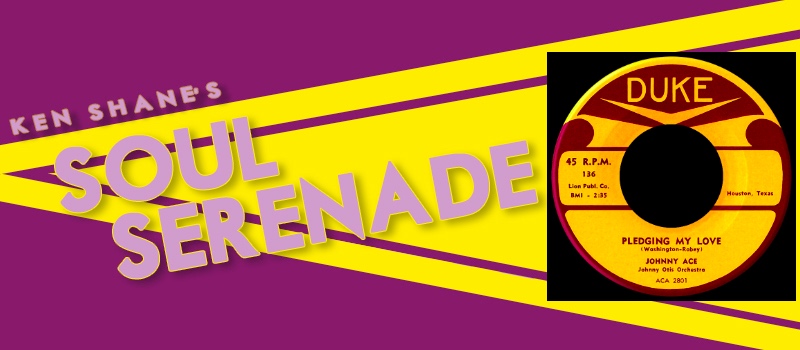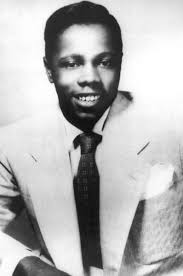 I was reading a magazine
I was reading a magazine
And thinking of a rock and roll song
The year was nineteen fifty four
And I hadn’t been playing that long
When a man came on the radio
And this is what he said
He said “I hate to break it to his fans”
But Johnny Ace is dead, yeah, yeah, yeah
Well, I really wasn’t, such a Johnny Ace fan
But I felt bad all the same
So I sent away for his photograph
And I waited till it came
It came all the way from Texas
With a sad and simple face
And they signed it on the bottom
From the late great Johnny Ace, yeah, yeah, yeah
Paul Simon, “The Late Great Johnny Ace”
His given name was John Marshall Alexander, and he was born in Memphis in 1929. After serving in the navy during the Korean War, Alexander got a gig playing piano with the Adolph Duncan Band, before moving on to B.B. King’s band. When King decided to move to Los Angeles, and vocalist Bobby Bland went into the army, Alexander took what was left of the band and renamed them the Beale Streeters.

After signing with local label Duke Records in 1952, John Alexander became Johnny Ace. His first single for the label was “My Song,” and it was a huge hit, topping the R&B chart for nine weeks. Ace followed-up his success with eight more hits, including “Cross My Heart,” “Please Forgive Me,” “The Clock,” “Yes, Baby,” “Saving My Love for You,” and “Never Let Me Go.” By 1954 he was so big that Cashbox Magazine named him the Most Programmed Artist of the year, and his records had sold over a million copies, a big number for that time.
Christmas Day, 1954 found Ace performing at the City Auditorium in Houston. Between sets he was messing around with his .22 caliber revolver. According to members of Ace’s band, this was a favorite pastime of his, and he would sometimes shoot from the car at road signs along the tour route. History tells us that Ace killed himself that day in Houston during a game of Russian Roulette. Band member Curtis Tilman was in the room however, and his version of what happened differs from the myth.
“I will tell you exactly what happened,” Tilman told Real Blues Magazine. “Johnny Ace had been drinking and he had this little pistol he was waving around the table and someone said Be careful with that thing,’ and he said it’s okay, gun’s not loaded, see?’ and pointed it at himself with a smile on his face, and bang! — sad, sad thing. Big Mama (Thornton, who was on tour with Ace at the time) ran out of the dressing room yelling Johnny Ace just killed himself!”
Thornton herself saw it somewhat differently. She acknowledged that Ace was playing with the gun, pointing at his girlfriend and another woman, but not firing. Then, according to Thornton, he pointed the gun at himself, acknowledging that he knew it was loaded. It went off, putting a bullet in the side of his head.
However it happened, Johnny Ace died that Christmas Day, and when his funeral was held at Clayborn Temple AME Church in Memphis on January 9, 1955, it was attended by approximately 5,000 people. “Pledging My Love” was released posthumously a month later on Duke Records, and was #1 on the R&B chart for ten weeks. The single also reached the Top 20 on the Billboard chart.
“Pledging My Love” has been covered numerous times, including versions by Teresa Brewer, the Four Lads, Johnny Tillotson, Roy Hamilton, Percy Sledge, Jay & the Americans, Diana Ross & Marvin Gaye, Solomon Burke, Elvis Presley, Emmylou Harris, and Aaron Neville. The song has also been heard in films like Christine, Back to the Future, Mean Streets, and Bad Lieutenant.





Comments